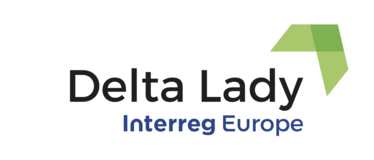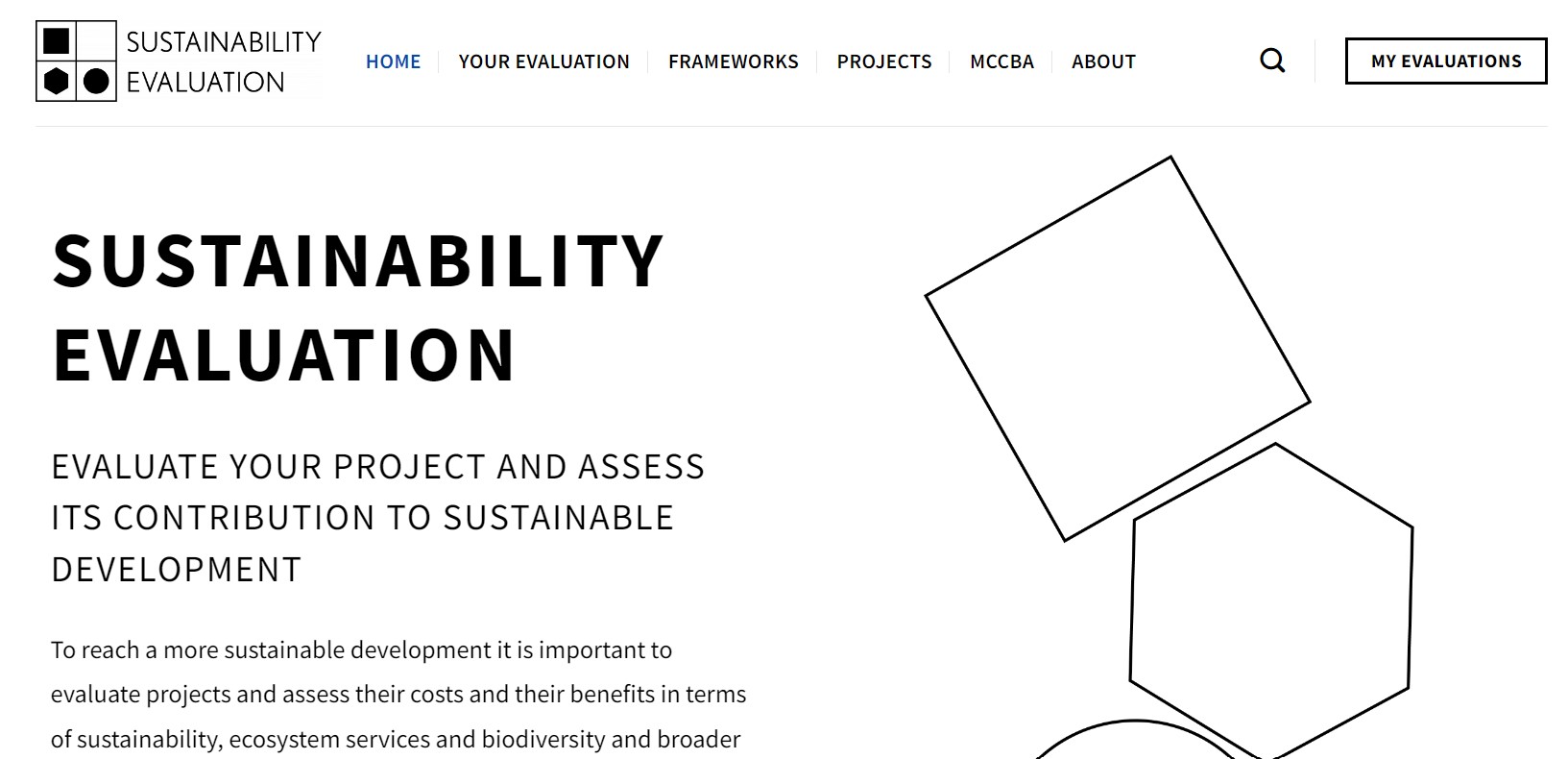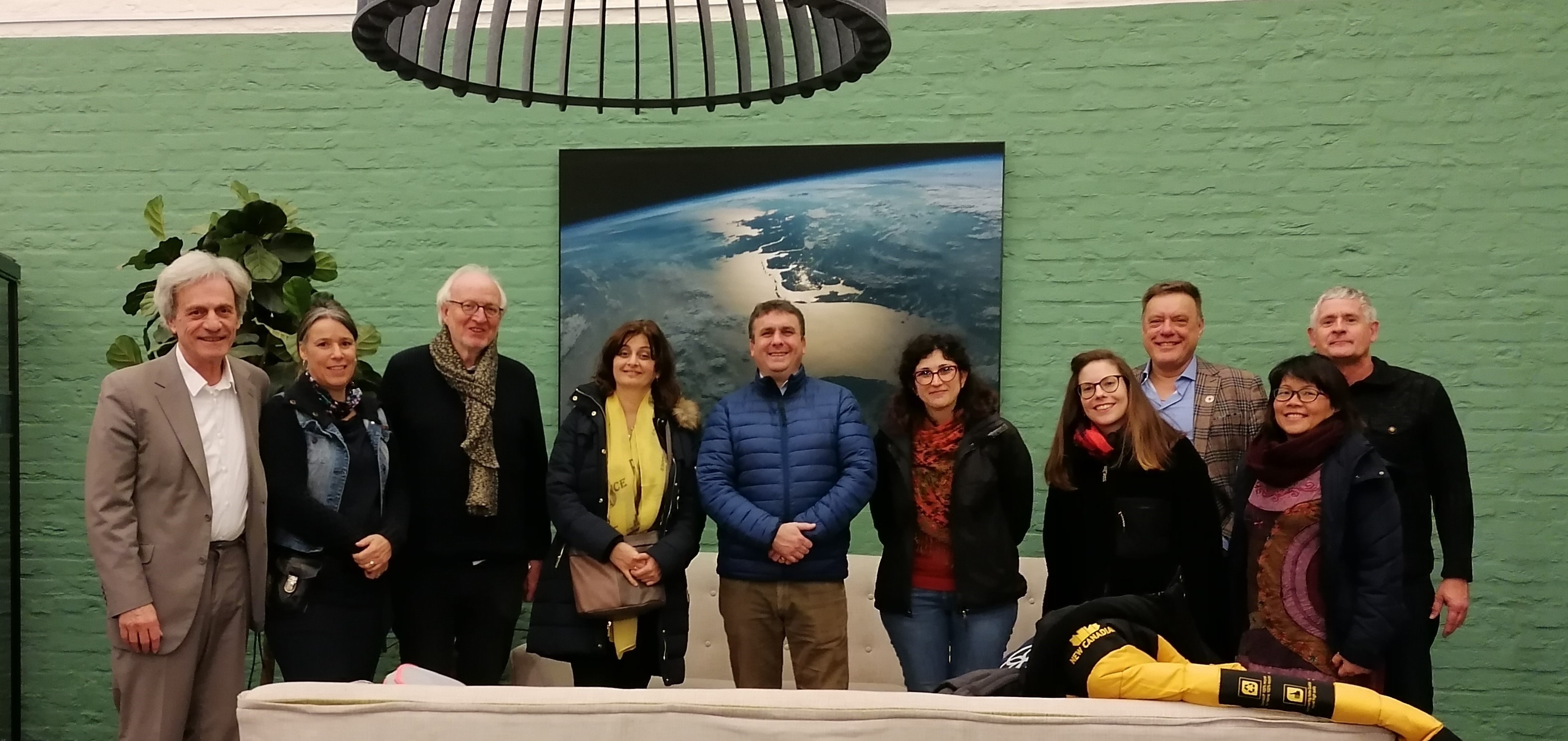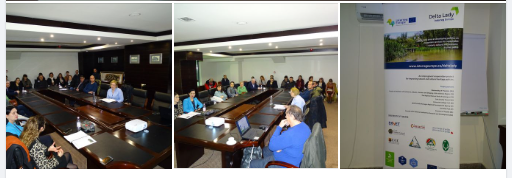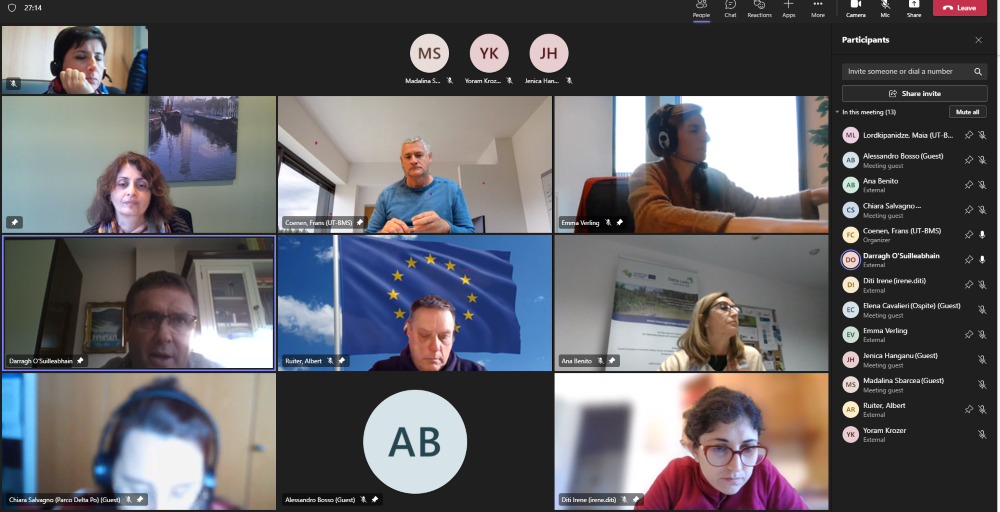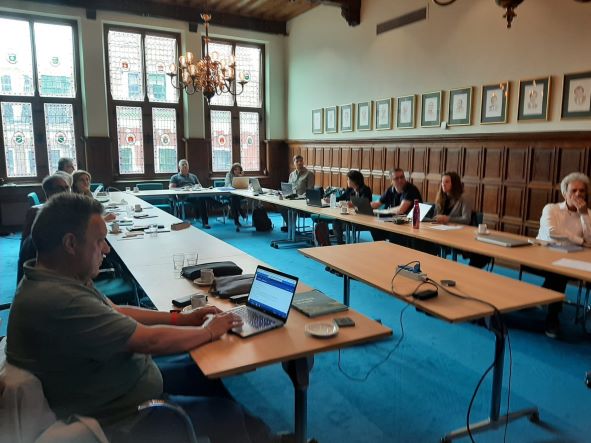An initial Regional Stakeholders Group was formulated within the 1st semester of the project. The 1st RSG meeting was held on Thursday 7th February 2019 at the Business Growth Hub, County Hall campus in Cork. The RSG members were selected on the basis of identified relevant representative stakeholders/bodies who could provide best practice/policy input into the project.
A couplet approach was adopted incorporating representatives from University College Cork (UCC) and different departments from Cork County Council (CCC). It was acknowledged at the meeting that the stakeholder group would have to be expanded to include additional representatives from Government Departments and Community Groups. A lack of project resources precluded making contact with the aforementioned additional sectoral representatives.
The main topics discussed included an overview of the Delta Lady Project background/ objectives and identification of best practice examples, referring to the overall project aim of working towards developing an Action Plan for the implementation of regional policy measures and initiatives aiming at utilising delta’s ecosystem services to stimulate regional economy. Group discussion of best practices was encouraged at the meeting as part of shared learning experiences and inter-personal learning.
The main focus of discussion was on the best practices examples identified including:
- Lee Catchment tourism (Kayaking as a result of improved water Quality)
- River Funshion Catchment Group
- River Blackwater Tourism
- ‘Ironman Ireland’ – Youghal 2019
- European Innovation Programme – Agri-Environmental Schemes
- Belvegay Marsh Youghal
- Duhallow Life & Burren Life Projects
The potential for mapping the identified best practice examples and linking them to water quality improvements with associated economic benefits was highlighted as a key future action for the group. A particular area for further investigation relates to “Up Stream Thinking”, A UK initiative currently being applied to the River Funshion (a tributary of the subject River Catchment).

Evaluation
Group discussion of best practice examples worked well encouraging interaction and reciprocal learning between the group members. A challenge encountered when planning the meeting related to resource/time constraints in gaining a sufficient stakeholder representation from non local authority representatives. During the meeting it was necessary to guide the discussion back within the scope of the project when discussing certain elements of the best practice examples.
The main learning points from planning/performing the meeting were the need to make contact with all relevant stakeholders as early as possible in advance of the meeting and the importance of providing a structured agenda to ensure the meeting discussion remains on point and relevant to the project objectives.
In terms of policy context the current policy vacuum at national and local levels of ecosystem services (ESS) was identified. The inclusion of a specific policy objective in the Draft Regional Economic and Spatial Strategies (RSES) currently on public display was highlighted as an excellent platform for policy delivery at a regional level. It will also help to facilitate the recognition of ESS at a local level having regard to the hierarchical planning policy structure in Ireland between national-regional-local levels.
Key members of the current RSG identified were Bryan Riney with regard to a policy objective delivery within the final adopted version of the RSES and Tim O’Higgins in terms of mapping of identified best practice examples.
The main conclusion points reached from the meeting related to:
- Investigate the potential for mapping the identified best practice examples and linking them to improvements in water quality and economic development
- Reassess the formulation of the RSG with a view to inviting additional stakeholders from other relevant bodies/sectors. Specifically, contact to be made with the Department of Agriculture, Youghal Socio Economic Development Group, Local authority Water & Communities Office, an environmental Representative form Cork County Council (Environmental Scientist) and additional Community Group involvement (River Allow & Funshion Catchment Groups)
Further development and investigation of the following:
- Bord Bia Initiative entitled ‘Origin Green’
- Bio Diversity Ireland – Bio diversity Plan for Pilot Site and Study Area
- Sustainable Irish Farming Initiative
- Economics of ESS
The main tasks that the stakeholders have been advised to consider in advance of the next RSG meeting are how their particular area of expertise and/or best practice example feeds into the overall project objectives in addition to any other relevant contacts/examples that should be considered.
The next meeting is provisionally planned for May 2019 with contact to be made with prospective additional RSG members in advance of same.
